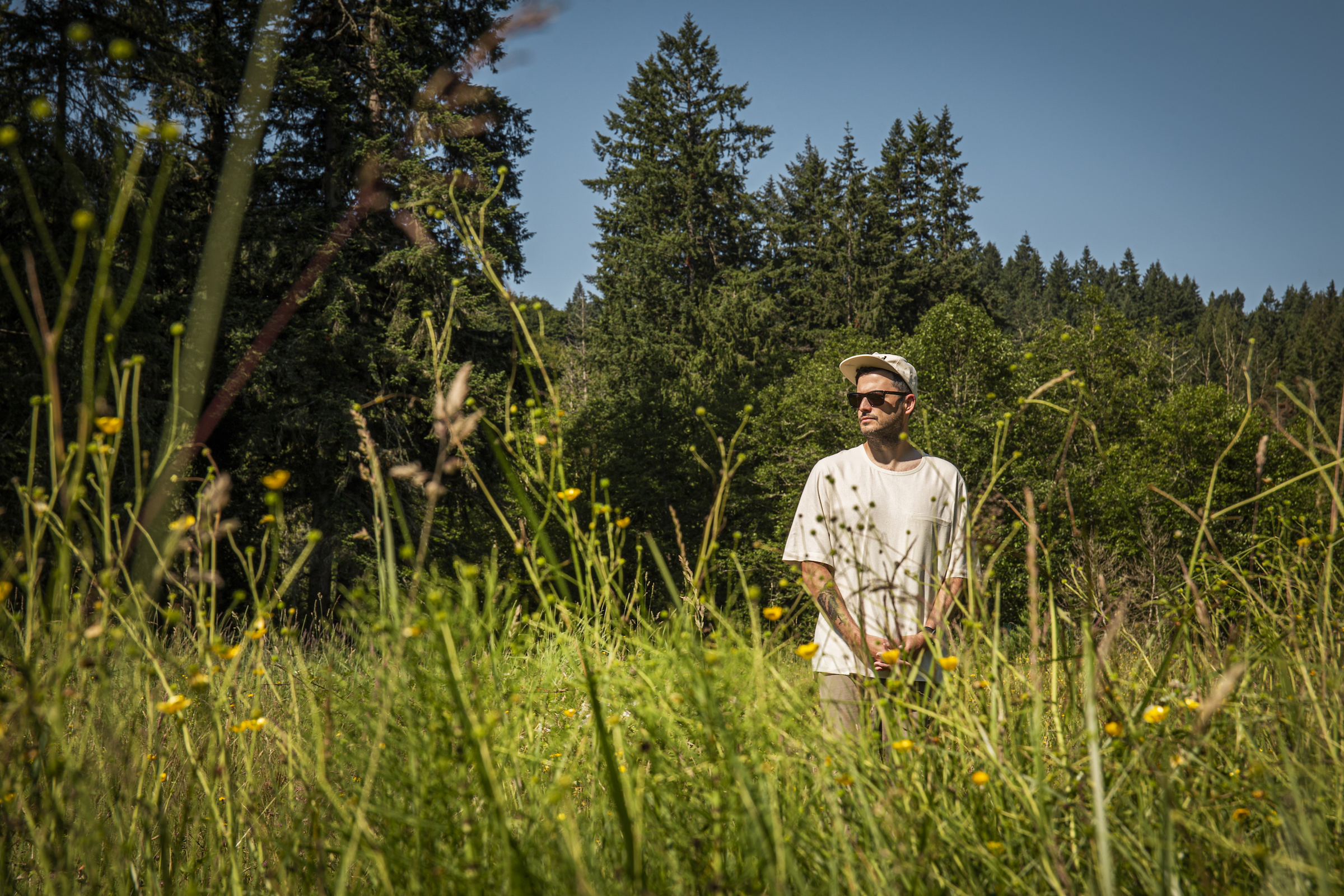SYML is the solo venture of musician and producer Brian Fennell. His sophomore album, The Day My Father Died, was released in Feb 2023 to critical acclaim, with NPR calling it, “euphoric.” Recorded and produced in Fennell’s hometown with fellow Seattle-native Phil Ek (Band of Horses, Father John Misty, Fleet Foxes), the new LP is his first album to feature a full band. It finds Fennell telling a story of interpersonal connection and chosen kinship following the death of his adoptive father in 2021. More a document of growth and healing than of loss, the album charts Fennell’s journey to figure out how to move forward after a fundamental and intractable shift in his life.
SYML spent the majority of the year on the road, headlining a mostly sold-out world tour and playing festivals, including BST Hyde Park in London. Following the album release, SYML has collaborated this year with Lana Del Rey, UK-based DJ George Fitzgerald, and Latin Grammy-nominated, Columbian alt-pop artist Elsa Y Elmar.
With over one and a half billion streams, SYML—Welsh for “simple”—makes music that taps into the instincts that drive us to places of sanctuary, whether that be a place or a person. Raised in Seattle, Fennell studied piano and became a self-taught producer, programmer, and guitarist. He released his self-titled debut album in 2019, which includes the platinum-selling song “Where’s My Love” and gold-selling fan favourite, “Girl,” followed by the grief-stricken EP DIM released in 2021, and the live recording Sacred Spaces, and an EP of piano compositions You Knew It Was Me.

